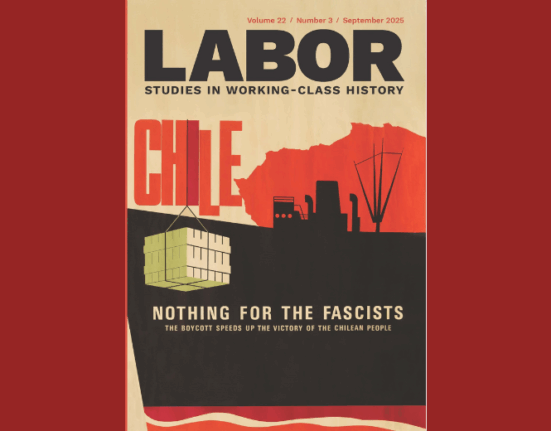On Tuesday, the AFL-CIO Executive Council approved a Statement on Energy and Jobs that effectively endorsed the construction of the Keystone XL pipeline. Technically, the resolution supported expanding the nation’s pipeline infrastructure, but this was an attempt to bypass outright support of a project that has attracted great criticism from the environmental community while dividing the federation’s constituent unions. This controversial project would bring oil from the Canadian tar sands through the United States to refineries on the Gulf of Mexico. The tar sands are a particularly dirty form of petroleum. Climate activists have said that building Keystone basically says that the game is over for the climate because of the massive carbon emissions generated from oil sands production. Last week, environmental leader Bill McKibben led a rally of approximately 50,000 people in front of the White House against the pipeline. McKibben is leading one of the fastest growing grassroots political movements in the country.

Keystone has divided organized labor. The building trades wholeheartedly approved yesterday’s resolution. The Laborers have played the leading role in supporting the project because of the construction jobs its members would gain. Other unions have denounced the project. The Transit Workers Union has taken a particularly strong stance against Keystone. To his credit, AFL-CIO President Richard Trumka has resisted pressure from the Laborers, IBEW, Teamsters, and several other unions for an outright endorsement, but this is probably good enough for them. Labor and environmental groups have tried to find common ground on issues of jobs and nature for a long time, most recently through the BlueGreen Alliance. But in January 2012, the Laborers left the BlueGreen Alliance with no small measure of acrimony. LIUNA President Terry O’Sullivan said:
“The fight for comprehensive climate change legislation to curb global warming is challenging and won’t be won easily, but is the best, if not only way, to create and protect jobs while protecting the planet. Sadly, instead of facing that challenge, the environmental movement and some unions have abandoned this mission and instead chosen to become job killers instead of job creators.”
I understand the tough situation that Keystone creates for organized labor. A union’s job is to protect the interests of its members, including keeping them employed, all too rare today. But in the early 21st century, with organized labor in deep decline, does it make sense to promote short-term job growth at the cost of telling the thousands of people who care deeply about a variety of progressive causes, including climate change, that organized labor is not an ally?
Let’s also remember that climate change is the greatest issue faced by humans in the 21st century. Events like Hurricane Sandy, the drought parching half the United States, and the massive forest fires in the West that are changing the ecology of states like New Mexico will almost certainly become far more common. Climate change will disproportionately affect the poor. Lack of air conditioning will cause higher death rates from heat exhaustion. Warmer weather will lead to higher cockroach populations that cause elevated asthma rates among urban dwellers. The poor in low-elevation nations like Bangladesh will suffer tremendously, not to mention those living in floodplains in the United States. Climate change is absolutely a working-class issue. Organized labor needs to play a leading role in conversations on how to fight this menace. Building a massive pipeline that makes the problem worse is counterproductive.
So I understand why LIUNA and the building trades are behind the pipeline. I won’t criticize them too harshly for a stance that will create jobs. But if organized labor wants to remain relevant within the 21st century progressive movement, it can’t support policies that intensify climate change. Endorsing more petroleum pipelines may create a few jobs in the short-term, but has starkly negative long-term consequences, both for the planet and for labor’s ability to make much-needed alliances with other organizations.







